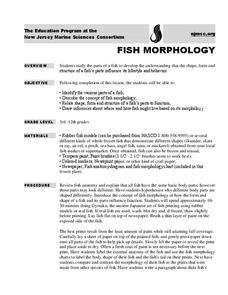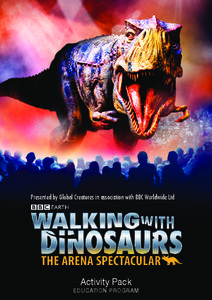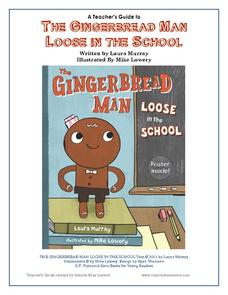Curated OER
Animal Adaptations
Young scientists explore the animal kingdom from the safety of the classroom with this short research project. After first choosing an animal, children use the Internet to discover where it lives, what it eats, and how it has adapted to...
K12 Reader
Adapting to Survive
Life science and language arts come together in a passage about animal adaptation. After kids learn about how organisms adapt to conditions in their environments, they complete five reading comprehension questions based on context clues...
Berkshire Museum
Camouflage!: Collecting Data and Concealing Color
Help young scholars see the important role camouflage plays in the survival of animals with a fun science lesson. Starting with an outdoor activity, children take on the role of hungry birds as they search for worms represented by...
Curated OER
Desert Animal Sorting
What makes certain animals better suited for desert life than others? Explore the differences between desert and non-desert animals with this picture sorting activity. Be sure to print the worksheet in color so students can observe and...
It's About Time
Adaptations
Congratulations! You exist, thanks to the wonders of biology and adaptations. The focus of the lesson explains many adaptations of plants and animals and how the environment has influenced the process. A hands-on activity demonstrates...
Umaine Museum of Art
Bony Fish Anatomy Worksheet
Take time to appreciate the beauty in the anatomy of animals with this cross-curricular art and science activity. After viewing examples of fish-themed artwork, children complete the included worksheet by labeling the different parts of...
Royal BC Museum
Kids Page - Whales
Read about the physical features of whales and how they are grouped according to their method of eating food. A neat activity is described on the page; consider carrying this out in class. The resource makes a nice addition to a lesson...
Consortium for Ocean Science Exploration and Engagement (COSEE)
Fish Morphology
Life comes in all different shapes and sizes, and fish are no exception. Here, young scientists create fish prints as they learn how specific characteristics allow different species to survive in their particular habitats.
K5 Learning
Will the Wolf
How well can a wolf survive without a pack? Third graders read about headstrong Will and his desire to be an independent wolf with a short story and series of comprehension questions.
Concord Consortium
Gestation and Longevity
Is the gestation length of an animal a predictor of the average life expectancy of that animal? Learners analyze similar data for more than 50 different animals. They choose a data display and draw conclusions from their graphs.
BBC
Walking with Dinosaurs
Breath new life into your class's study of dinosaurs with this extensive collection of materials. Offering everything from a printable T-rex mask, word searches, and connect-the-dots activities to informational handouts, hands-on...
Wildwood Trust
Habitats
The circle of life is all around us, from the black bears in the nearby mountains to the pile of dead leaves in the backyard. Encourage young scientists to take a critical look at the world around them with a set of lessons about natural...
Great Books Foundation
On the Origin of Species
How did Charles Darwin support his controversial theory of evolution with evidence? Use an excerpt from his 1859 work On the Origin of Species to reinforce the importance of making inferences within an informational text, and to discuss...
Fluence Learning
Writing an Opinion: Buddies that Bark or Purr-fect Pets?
Which animal is best for you—a dog or cat? Why? Engage third graders in an opinion writing assessment that prompts them to read facts about both pets, and then write and decide which pet is best for them.
K5 Learning
Survival in the Wild
How do animals survive in the wild? Read about the different adaptations such as camouflage and self-protection that animals use to survive.
English Worksheets Land
That Darn Cat!
Read about the darnedest can in two fables adapted from Aesop's Fables. Readers answer three reading comprehension questions that prompt them to compare and contrast animal characters in the two stories.
Science Matters
Ecosystem Pre-Assessment
Test scholars' knowledge of ecosystems with a 20-question pre-assessment. Assessment challenges learners to answer multiple choice questions, read diagrams, and complete charts.
EngageNY
Interpreting Residuals from a Line
What does an animal's gestation period have to do with its longevity? Use residuals to determine the prediction errors based upon a least-square regression line. This second lesson on residuals shows how to use residuals to create a...
Curated OER
Tears of Joy Theatre Presents Anansi the Spider
Accompany the African folktale, Anansi the Spider, with a collection of five lessons, each equipped with supplemental activities. Lessons offer multidisciplinary reinforcement in English language arts, social studies, science, and arts...
Penguin Books
A Teacher's Guide to The Gingerbread Man Loose in the School
What if the Gingerbread Man was trying to catch you, rather than the other way around? Pupils can find out what happens by reading the story The Gingerbread Man Loose in the School by Laura Murray and enrich their experience with the...
Harper Collins
Amazing Women
Helen Keller became a teacher after her experience with Anne Sullivan, demonstrating to the world how valuable a dedicated mentor and determined spirit can be when overcoming adversity. Middle schoolers learn more about the influential...
K12 Reader
Taiga Ecosystems
Introduce your class to another type of ecosystem, the taiga ecosystem, through a reading passage. Class members read the text and then respond to five reading questions about the content of the passage.
Other popular searches
- Ocean Animal Adaptations
- Fantasy Animal Adaptations
- Plant and Animal Adaptations
- Animal Adaptations Behaviors
- Animal Adaptations +Wetlands
- Animal Adaptations Wetlands
- Animal Adaptations Eating
- Desert Animal Adaptations
- Animal Adaptations to Cold
- Animal Adaptations and Math
- Oceanic Animal Adaptations
- Animal Adaptations Oceans























